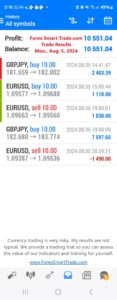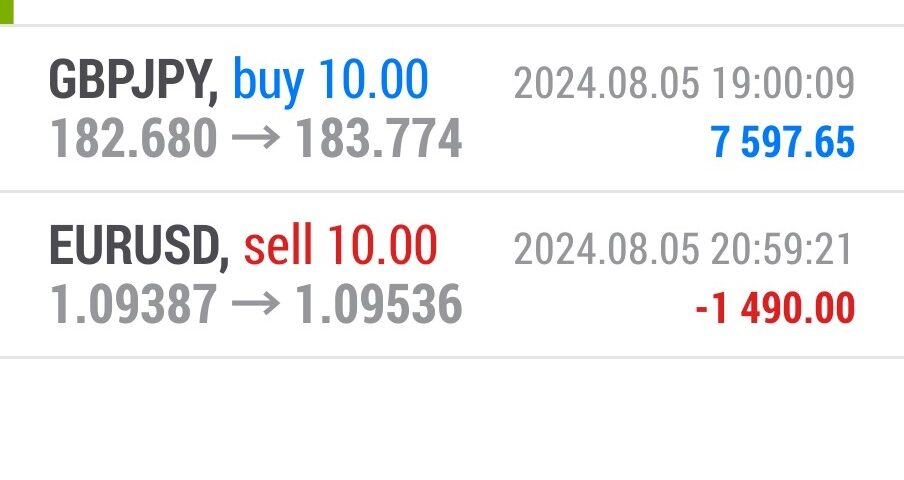Forex Smart Trade Results, Monday, August 5, 2024 – $10,551

Forex Smart Trade Results, Friday, August 2, 2024 – $0
August 24, 2024
Forex Smart Trade Results, Tuesday, August 6, 2024 – $9,362
August 24, 2024Canada – Economic Overview.
Canada is considered a resource-based country, which basically means that most of the economic growth it experienced early on came from the utilization and export of its own natural resources.
According to the IMF, Canada’s economy is the tenth-largest in the world, making it part of the world’s G8.
It ranks as the seventh biggest producer of gold and the fourth-largest producer of black crack (oil).
Despite its robust industrial and manufacturing industry, much of Canada’s GDP actually comes from its service sector.
Its advanced services sector employs three out of every four working Canadians and accounts for about 70% of the country’s GDP.
Next time you meet a Canadian, go ahead and make a bet with him that he works in the services industry.
More often than not, you’ll win!
Canada’s economy really got going in January of 1989, when the Free Trade Agreement came into effect.
The agreement basically removed all the tariffs (that is the tax imposed on trade) between the US and Canada. In effect, Canada now exports over 70% of its goods to the US.

Learn to Trade
If you’d like to earn extra income trading on the Forex market, consider learning how to currency trade with Forex Smart Trade. With their super-accurate proprietary trading tools and best-in-the-business, personalized one-on-one training, you’ll be successful. Check out the Forex Smart Trade webinar. It shows one of their trader’s trading and how easy, intuitive, and accurate the tools are. Or try the Forex Smart Trade Introductory Day Trading Trial for just TEN dollars.
Currency trading is very risky. My results are not typical. We provide a trading trial so you can assess the value of our indicators and training for yourself.


